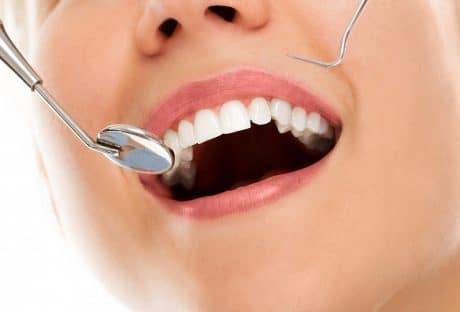There’s nothing like a health scare or an accident to make you realize the value of your life. Whether it was your accident or a friend barely escaped death, you realized you need to live healthier.
Or maybe you need to start nagging your elderly family member to stop smoking again. There are so many ways how to live a longer life, that it can get overwhelming.
We’ve structured this post so you have one thing to do every month that’ll improve your life and your health. It doesn’t have to wait until January either – start this list right now!
You’re only one habit away from how to live a longer life.
Month #1 Task: Drink More Water:
There’s a problem in the US where we drink too much soda and alcohol. While that’s fine once in a while, neither should be a daily occurrence.
If you drink more than one soda a day or more than one beer, make yourself add in one glass of water. If you want to go the extra step, then replace one of your beverages with water instead.
If you don’t drink either, then drink a glass of water when you wake up every day. It’ll give your body a boost of hydration to start the day and help you wake up!
Month #2: Stop Popping Pills:
There’s nothing wrong with taking the occasional Tylenol or ibuprofen when you’re in pain – but people take them all the time. Before you pop them at the first sign of a headache, drink a glass of water, and rub your temples.
You can buy pre-mixed essential oil headache sticks that will stop the pain in its tracks.
Taking these pills too often can increase your risk of heart attack and even stroke by 10%. They’re also hard on your kidney and your liver since that’s where they process.
If you do have to take one, try to take a lower dose and only take more if you need it.
Month #3: Go to Sleep, Please!
Just an extra half hour of sleep a night can do wonders for your life. Sleeping re-regulates everything, so you can see better results in your skin, your mood, your sex life – just about everything.
That means putting down your phone before you go to sleep and picking up a book. The blue light our phones and devices emit confuse our brain’s circadian rhythms.
You can also invest in a sleep tracker watch or app on your phone that tracks your sleep cycles. Then, it can predict the best time for you to wake up when you’re in light sleep.
That will stop you from feeling groggy in the mornings and you’ll bounce out of bed.
If you can’t sleep easily in general, go see your thermostat. Your body likes to sleep in a chilly room, so set it as low as your budget allows. 67 is a prime temperature.
Finally, regulate your sleep schedule. Going to bed at the same time and waking up at the same time every day gives your body a routine, and bodies love routines!
Month #4: Get Outside:
We know it’s hard to get time in the sun, especially in the winter. You drive to work as the sun is just coming up and when you get out, it’s already going down.
But humans are low on vitamin D, which we get from sun exposure. Not enough vitamin D can lead to depression and general fatigue.
Try to take a quick walk outside during a break or eat lunch outside. If it’s too cold – find a room with a lot of sunlight in your building.
You can take it in a supplement or even buy sunlight if you’re really struggling with your Vitamin D levels. But, try to get the real thing if you can – it’s always better than faking it.
Month #5: Take Time Off:
Do you know those vacation days that are adding up? Or those weekends that just feel like work part two with all the things you try to stuff in?
It could be hurting your longevity. The body needs a break from work and not taking one can lead to a heart attack.
Even if you don’t have the money to take time off work or have a real vacation, leave your Saturday unplanned for once. Laze around the house in your PJs and do nothing. Play with the kids and make a late breakfast.
Go work in your garden – only if you enjoy it. Your body deserves a break.
Month #6: Challenge Your Brain:
Not only can this tip help you live a longer life, but it can also help you live a longer, better life.
Is there a card game you love playing but never have time for? Do you like doing crosswords or playing sudoku? Keep doing it! Activating your brain in challenging ways keeps it working.
Think of it as muscle (which it is), you need to work it out. Keeping your brain active longer can prevent or put off the development of dementia by a few years. That means you’ll have more time you can be present with family and friends.
If your loved one lives in a nursing home or works with an organization like Families Choice Home Care, ask their nurses if they’ll play challenging games with them.
Invest in some good mechanical pencils and an extra eraser or a new deck of cards. It’s time to play!
How to Live a Longer Life in 6 Months:
The idea behind these tips is that they’ll become a habit in their month, then the next month you’ll build on that habit with the next tip.
So by month three, you should be drinking more water, taking fewer pills, and sleeping at least a half-hour more. That’s the best way how to live a longer life – small changes that add up over time.
Want more health and fitness tips? Click here.
Read Also:


























